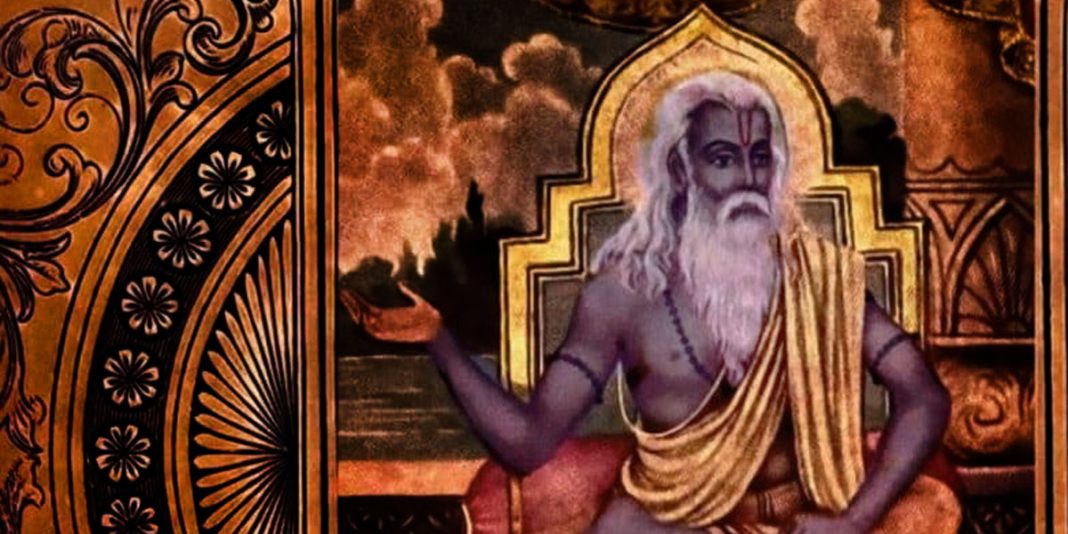The Vedas are the primary source of profound infinite knowledge about the existence of mankind.
Passed on from generation to generation as a guideline to operate human life in the light of absolute truth and divinity, the Vedas are among the first literary documents that ever existed in mankind.
Revealed in the form of sacred sounds and texts, the Vedas are the shabda-brahma, revealing absolute truth in sound. In ancient India, the Vedas served as the source of knowledge in different spheres including astronomy, mathematics, ethics, grammar, law, cosmology, medicine, art, and music.
The Vedas have not been created by any sage or seer, but this knowledge is believed to be eternal and exists in the ethereal space in the form of ‘Shabad’, the sounds that were transcribed by the ancient sages in deep meditative states. Preserved by the Hindus, the custodians of this vast knowledge, the knowledge was passed by the Brahmins to the disciples through the oral recitation of hymns and chants that are thought to replicate the exact sounds that exist in the universe.
How Sages Preserved the Vedas: The Vedas existed before the time the sacred scriptures were engraved on a rock or written in the form of bark manuscripts. The ancient sages devised a unique way of teaching the scriptures revealed from their meditative practices to the disciples. The Vedas are considered as Shruti (that can be heard and recited), and the teachings of the Vedas were passed from a guru to the disciple in the form of oral recitations of hymns and chants. The gurus made the disciples memorize the scriptures with exact pronunciation to maintain the integrity of the Vedic sounds.
Vedic Manuscript Creation and Preservation: The knowledge of Vedas was always there. Rishi Vyasa compiled the divine knowledge into four Vedas and passed orally thousands of years ago. (Est. 3000 BCE) The oral Vedic knowledge was transcribed into a manuscript by Adi Shankara for the first time, between 1500 – 500 BCE. The four main Veda texts include Rigveda, Samaveda, Yajurveda, and Atharvaveda with four subdivisions in each Veda. The manuscripts were written in Vedic Sanskrit. Nearly 30 Rigveda transcripts are preserved in Bhandarkar Oriental Institute in Pune, Maharashtra. However, some of the oldest Vedic tablets are held in the British, French, and German museums in safe custody.

